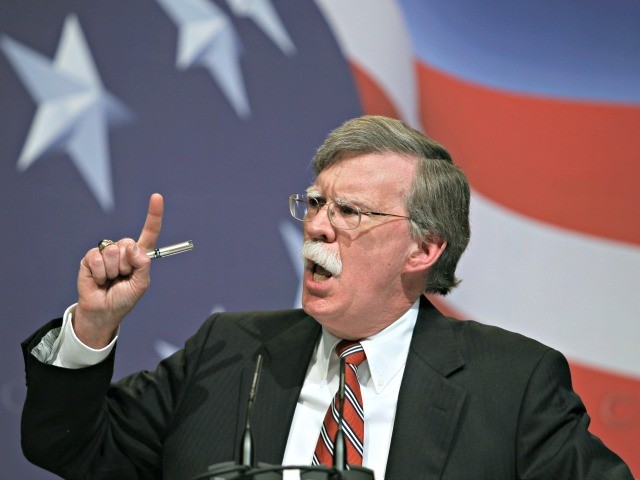Then-former United Nations ambassador and Fox News contributor John Bolton told Judge Andrew Napolitano during a Fox Business program in 2010 that he would lie to protect national security, defending diplomatic secrecy.
Democrats are pushing for Bolton to testify in the ongoing Senate impeachment trial. Some Republicans have indicated they are open to hearing from Bolton if the Senate votes in favor of new witnesses later this week.
Bolton told Napolitano:
I want to make a case for secrecy when it comes to the conduct of national security affairs and, if possible, for deception where that’s appropriate. You know Winston Churchill said during World War II that in wartime truth is so important it should be surrounded by a bodyguard of lies.
The judge then asked, “Do you really believe that?”
“Absolutely,” Bolton replied, later adding, “If I had to say something I knew was false to protect American national security, I would do it.”
Napolitano pushed back, “Why do people in the government think that the rules of society or the laws don’t apply to them?”
Suggesting that the U.S. Constitution allows him to lie to protect national security, Bolton responded, “Because they are not dealing in the civil society we live in under the constitution. They are dealing in an anarchic environment internationally where different rules apply.”
Jon Levine from the New York Post highlighted the 2010 exchange via Twitter on Wednesday.
John Bolton in 2010:
"If I had to say something I knew was false to protect American national security, I would do it"
(H/T @tomselliott) pic.twitter.com/O2beQMoxlD
— Jon Levine (@LevineJonathan) January 29, 2020
Bolton served as U.S. President Donald Trump’s national security adviser for about a year and a half between March 2018 and September 2019. While Bolton claims he resigned, Trump said he fired him.
In the wake of new revelations made by the New York Times, Democrats have intensified calls for the former Trump White House official to testify in the ongoing Senate impeachment trial.
Citing an unpublished manuscript of an upcoming book by Bolton, the Times claimed the former U.N. ambassador wrote that Trump admitted in August 2019 to withholding aid to Ukraine in a bid to pressure the Eastern European country to investigate corruption allegations against Joe Biden, his son Hunter, and 2016 U.S. election interference on behalf of the Democrats.
Trump denies the allegation. The revelations have prompted some Republicans to consider voting in favor of Bolton testifying. In order to get the opportunity to call Bolton to testify, Democrats need four Republicans to join them. If Senators vote to allow new witnesses, Republicans will get to call their own.
The alleged unpublished manuscript contradicts Trump’s defense that the freezing of aid had nothing to do with his request for investigations.
A “whistleblower” complaint accuses Trump of engaging in a quid pro quo in which he attempted to coerce the Ukrainian president during a July 25 call to launch investigations into the Bidens and 2016 U.S. election interference in exchange for aid. The complaint triggered the impeachment probe and ongoing Senate trial to remove or acquit Trump.
Trump’s defense team, the president himself, and Ukrainian President Volodymyr Zelensky have vehemently denied the accusation. Moreover, the Trump administration released the aid without Ukraine having to do anything in exchange.
Bolton had a change of heart about how he felt about the July 25 call after Trump allegedly fired him from the Trump White House. In March 2019, Bolton told Radio Free Europe/Radio Liberty (RFE/RL) that the Trump-Zelensky call was “very warm and cordial” and acknowledged that corruption poses a significant problem for Ukraine.
Now, Bolton claims he was concerned about the contents of the July 25 conversation. The phone call is at the heart of the impeachment and ongoing Senate trial.
Citing the unpublished manuscript, the Times also reported that Bolton raised concerns about the July 25 Trump-Zelensky call to Attorney General William Barr, a claim denied by the U.S. Department of Justice (DOJ).

COMMENTS
Please let us know if you're having issues with commenting.